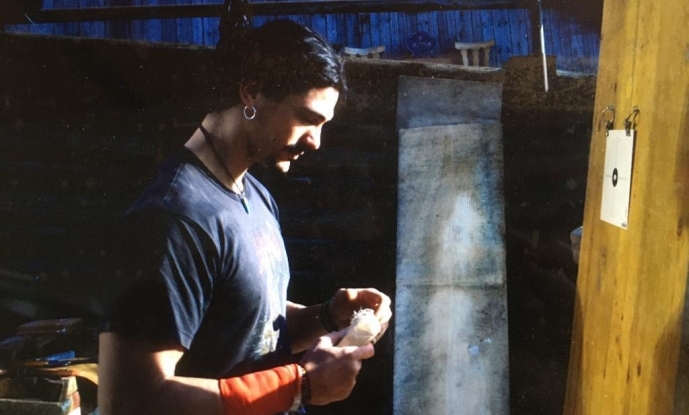Mario Torralba Sáez
PhD Student
Details
Position
PhD Student
Member type
Students
Email
Degree
MSc
Address
CIBIO-InBIO, Universidade do Porto, Campus de Vairão, Rua Padre Armando Quintas, 4485-661 Vairão, Portugal
Biologist by nature, I performed my bachelors at the universities of Salamanca and The Basque Country. The evolutionary forces that have shaped all life forms have been central motivations during my undergraduate years and led me to pursue the EU-funded ‘Masters of Excellence and Mobility in Evolutionary Biology’.
In the course of numerous lab rotations around Europe during my masters and follow-on work, I have shaped my curiosity into a meticulous and creative approach to research in topics as diverse as community and food-web structure of marine ecosystems (Groningen University; NIOZ Royal Netherlands Institute for Sea Research), experimental evolution on agricultural pests—spider mites—(Montpellier University; Institute of Evolutionary Sciences of Montpellier), fly genotype-to-phenotype computational and experimental mapping (Ludwig Maximilian University of Munich), or shark genome evolution (Bavarian State Collection of Zoology).
However, it was through my fieldwork volunteering at The Great Coral Reef—evaluating sea turtle and seagrass meadows health threatened by multiple anthropogenic stressors—that I knew my fundamental scientific endeavours cannot be detached from the current state of worldly crises. I am currently a campaigner at ‘SharkProject’, an international organization involving researchers and other enthusiasts seeking to protect sharks and their habitats around the world. I will continue to actively contribute to shark conservation whilst maximising the opportunities of a PhD at BIOPOLIS/CIBIO-InBIO. In particular, my project here seeks to uncover the movement dynamics, population status, and risk to fishery exploitation of tiger sharks (Galeocerdo cuvier) in the unexplored waters of Atlantic Africa. Through a multidisciplinary approach, I will implement multiple techniques spanning from satellite tracking to genetic analysis to gather critical information with which to propose robust conservation initiatives.


